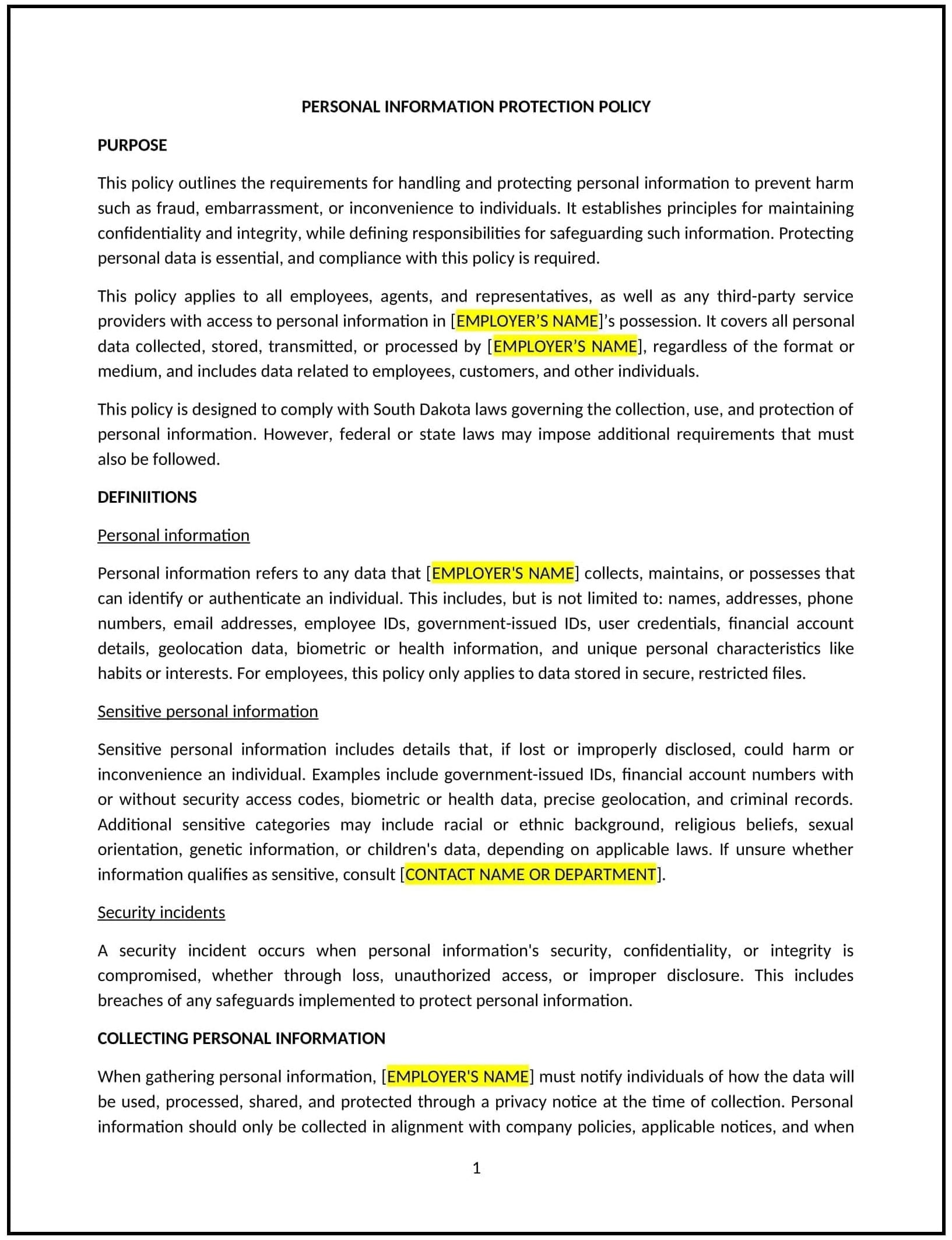Personal information protection policy (South Dakota): Free template
Got contracts to review? While you're here for policies, let Cobrief make contract review effortless—start your free review now.

Customize this template for free
Personal information protection policy (South Dakota)
This personal information protection policy is designed to help South Dakota businesses establish guidelines for safeguarding employee and customer data. It outlines procedures for data collection, storage, and access control.
By adopting this policy, businesses can protect sensitive information, build trust with stakeholders, and align with general best practices for data security.
How to use this personal information protection policy (South Dakota)
- Define personal information: Explain what constitutes personal information, such as names, addresses, Social Security numbers, and financial data.
- Establish data collection procedures: Specify how personal information will be collected, including consent and transparency requirements.
- Outline storage and access controls: Provide guidelines for securely storing data and limiting access to authorized personnel.
- Address data breaches: Specify steps for responding to data breaches, including notification and mitigation procedures.
- Train employees: Educate staff on the policy and their responsibilities for protecting personal information.
- Monitor implementation: Regularly review data protection practices to ensure adherence to the policy.
- Review and update: Assess the policy annually to ensure it aligns with evolving business needs and data security trends.
Benefits of using this personal information protection policy (South Dakota)
This policy offers several advantages for South Dakota businesses:
- Protects sensitive information: Demonstrates a commitment to safeguarding employee and customer data.
- Builds trust: Shows stakeholders that the business values their privacy and security.
- Reduces risks: Helps prevent data breaches, identity theft, and other security incidents.
- Enhances reputation: Positions the business as a responsible and trustworthy organization.
- Supports best practices: Aligns with industry standards for data protection and privacy.
Tips for using this personal information protection policy (South Dakota)
- Communicate the policy: Share the policy with employees and include it in training materials.
- Provide training: Educate staff on the importance of protecting personal information and following the policy.
- Monitor implementation: Regularly review data protection practices to ensure adherence to the policy.
- Address issues promptly: Take corrective action if data breaches or security vulnerabilities are identified.
- Update regularly: Assess the policy annually to ensure it aligns with evolving data security trends.